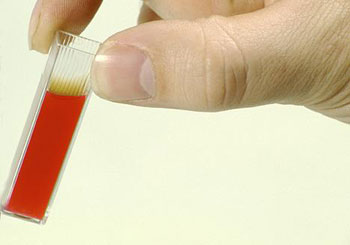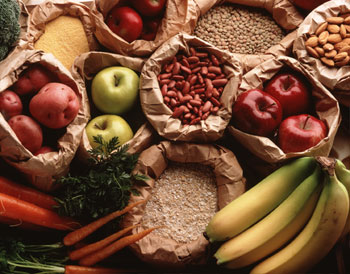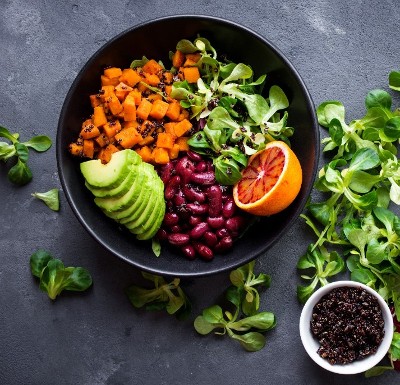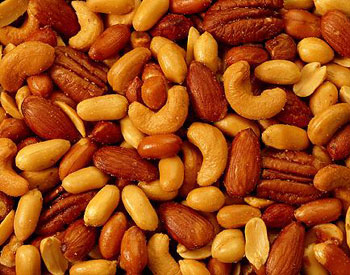Published First on 02.18.2019
Update 02/16/2020
Cholesterol and What to Do About It
By Dr.Ashraf Girgis N.D
We most often talk about cholesterol as if it is a very bad thing to have in our bodies. In fact, we go through a lengthy and costly process of buying pharmaceutical drugs in order to keep cholesterol low. But is cholesterol really bad? It’s true that high levels of LDL – known as “bad cholesterol” – are dangerous and can lead to heart attacks, blocking of arteries, and stroke. However, it seems that the damage caused by high level of LDL is a result of cholesterol oxidation – not high cholesterol alone. Our bodies needs cholesterol for many of its functions.
Most of the body’s cholesterol is made in our liver – 1000-1500 mg daily. Additionally, our food (animal products carry cholesterol – plants do not) bring about 300 mg cholesterol daily. Cholesterol is made of essential fats that our body needs. These fats are not soluble in water (blood), so they need protein in order to be carried around the body. Proteins that carry fat or cholesterol are called lipoproteins. High cholesterol is a result of eating high animal fat and carbohydrate. In the last century, there was a huge emphasis on preventing coronary heart disease by avoiding high cholesterol foods such as egg yolks. However, numerous studies since then have indicated that eating high-cholesterol foods such has little or no impact on the level of LDL in the body or an increased risk of heart diseases.
Still, it is important to keep our bad cholesterol under control to prevent heart diseases. Doctors suggest keeping total cholesterol level under 200; levels above 240 are considered very high. LDL, the bad cholesterol, should be kept under 100; above 160 is considered high. “Good cholesterol” is preferably kept above 60 milligrams per deciliter (mg/dL), while a level below 40 is considered a major risk factor for heart diseases. In children, these levels vary.

|
Cholesterol is a prerequisite for 3 important molecules.
1. Bile salts.
Bile salt fluid that is made by the liver and stored in gallbladder. It has a yellowish-green color and helps with breaking down fat and absorbing fat-soluble vitamins such as A, K, E, and D. It also helps with elimination of the waste.
2. Steroid hormones
Cholesterol is a precursor to five major steroids: progestogens, glucocorticoids, mineralocorticoids, androgens, and estrogens. Each one of these hormones plays a significant role in our body.
3. Vitamin D.
Cholesterol is finally necessary for vitamin D to play its role in the metabolic control of calcium and phosphorus. Vitamin D binds to a receptor which is similar to a steroid receptor and functions as a transcription factor, regulating our gene expression.
In order to keep bad cholesterol from getting too high, it is important to modify your lifestyle in several ways.
|
 |
|

|
1. Staying Active
There is long-established research indicating that a sedentary lifestyle increases the risk for heart disease. Also, it is a fact that exercise lowers weight, improves stress levels and increases HDL (the good cholesterol). The exact mechanism by which exercise affects cholesterol levels has not been established yet, and research did not show clear changes in levels of LDL (bad cholesterol) due to exercise, but exercise nonetheless is a wise choice for maintaining healthy cholesterol levels. Growing evidence suggests that exercise results in an elevation of antioxidants, and it is plausible to conclude that increased concentration of antioxidants reduces the risk of cellular injury, leading to cardiovascular diseases caused by blocked arteries.
All of this evidence provides good reasons for us to stay active. It is best to not only engage in moderate exercise for 30-40 minutes a day, but also to stay active in between.
Move around the office; avoid sitting for a long time behind your desk. by making sure to deliver messages in person, as oppose to emails or calls. Use stairs whenever possible. While you are on kept hold or having a long conversation, place the phone on speaker while doing a few gentle stretches or tai chi movements. At home, change your TV channel manually (if such a thing is any longer possible, due to smart TVs). Move around the kitchen. Play with your kids using games which involve physical activity. The bottom line is to keep moving.
|
|
2. Managing stress.
The relationship between cholesterol and stress has long been evident from research. During “fight or flight,” the initial stage of stress, the body releases stress hormones. All activities in our bodies are aimed to fight whatever threat is perceived as stressful. One of the body’s actions is to convert everything to glucose in order to provide the extra energy needed to fight the perceived threat; this includes releasing cholesterol into the blood. Chronic stress can therefore cause cardiovascular and many other diseases. As a result, it is extremely important for us try to find solutions for whatever is causing our stress. Keep in mind that stress to a manageable level is the spice of life; without it, live can be boring and depressing. However, chronic stress has to be faced immediately. Please make sure to visit our stress management section for ways to manage stress. Feel free to call to purchase my stress management book; it is a very easy to read guide to different ways of dealing with stress.
|
 |
 |
3. Healthy Eating
I love to say over and over that “we are what we eat.” In dealing with high cholesterol, what we eat plays a major role. Avoiding animal fats, trans fats, and hydrogenated fats, in addition to lowering our intake of saturated fats found in cheese, cream, butter, and other dairy products. Despite controversy, saturated fat from foods such as coconut oil seems to be good for you. Coconut oil is a medium-chain fatty acid. Medium-chain fatty acids do not seem to be stored in fat tissues as readily as the long-chain fatty acids. However, coconut oil is loaded with calories. The American Heart Association’s recommendation for saturated fat intake is 5-6% of total caloric intake.
The healthiest recommendations for cooking with fats are olive oil, walnut oil, coconut, avocados, and soybeans (organic only, as there have been many GMO soybeans on the market). Avoid trans fat and hydrogenated fats altogether, as both have been shown to increase LDL.
|
|
4.Consuming daily fiber
Consuming daily fiber is very important in keeping cholesterol under control. The daily recommendation of fiber is between 25-35 grams per day. There are two types of fiber: soluble and insoluble.
Soluble fiber binds in the small intestine and absorbs water, turning into a jelly and attaching itself to small particles of cholesterol in the intestinal tract. The jelly substance then removes cholesterol before it enters into the blood, getting it out of our body in the form of feces. Soluble fiber is very effective in lowering LDL level. The daily recommendation for soluble fiber is 15-25 grams of your total fiber intake. Soluble fiber can be found in whole-grain cereals (barley, quinoa, oatmeal, and oat bran), legumes, fruits, and vegetables. Data analysis and various research from 1996 to 2009 concluded that a “diet rich in legumes other decreases total and LDL cholesterol.” Legumes include lentils, chickpeas, peas, kidney beans, alfalfa, pinto beans, navy beans, and peanuts. Most of the time, a cup of legumes contains about 15 grams of soluble fiber.
|
 |
 |
Insoluble fiber, on the other hand, despite all its many benefits does not seems to decrease cholesterol levels. Soluble fiber stays unchanged inside intestine and exits the body in the form of feces.
Fruits and vegetables, such as all kind of berries, are not only full of antioxidants and vitamins but are also good sources of fiber. Eating fruits and lots of dark green and rainbow-colored vegetables is important for your overall health and the health of your heart.
Make sure also to avoid red meat, or to only have it every once in a while, making sure it is lean with as little fat as possible. Studies have shown that adding vitamins such as vitamin C can also protect the heart. Vitamin C has been shown to lower total cholesterol, and specifically LDL cholesterol. Chromium supplements have also been shown to lower total cholesterol and LDL while increasing good cholesterol. One double blind study gave participants 500mg of chromium for 13 weeks combined with exercise and caused a 20% decrease in total cholesterol (The Natural Pharmacy).
|
|
In a study published in 2015, in the International Journal of Cardiology, taking a gram of bergamot extract for about a month reduced cholesterol levels of participants from an average of 278 milligrams per deciliter to 191. Bergamot is a citrus fruit used in flavoring of earl grey tea. It contains antioxidants and flavonoids.
Eating Nuts, such as pistachios, walnuts, almonds, and other nuts with high levels of unsaturated fats is also good for decreasing LDL and increasing HDL. The American Heart Association suggests 4-5 servings of such nuts per day (about a handful, or 1.5 ounces, per each serving). In a study published in the Journal of Nutrition in April of 2017, consuming 30 grams per day of either raw or roasted hazelnuts for 28 days improved HDL and blood pressure without any increase in body fat. Scientists noticed that small levels of added salt did not exclude the hazelnuts’ cardiovascular health benefits. So feel free to eat nuts as a healthy snack, while keeping in mind that, like coconuts, they have a high caloric content. A small amount daily can go a long way.
|
 |
 |
Thanks for visiting www.curenaturally.org. At this time, Dr. Girgis is not accepting any patients. However, if you are interested to schedule Dr. Girgis for any talk regarding topics mentioned in our list, please feel free to call. Talks are scheduled at least 6 month in advance. If you would like to purchase any books or CDs by Dr. Girgis, please call our number 1(616) 777-0608 or email contactcurenaturally@gmail.com and leave a message. We will call you back and will mail you your books upon receiving credit cards or check. With the exception of a few local stores, Dr. Girgis does NOT PROVIDE ANY ON- LINE SALES unless specially authorized bycurenaturally.org.
|
|
|
|